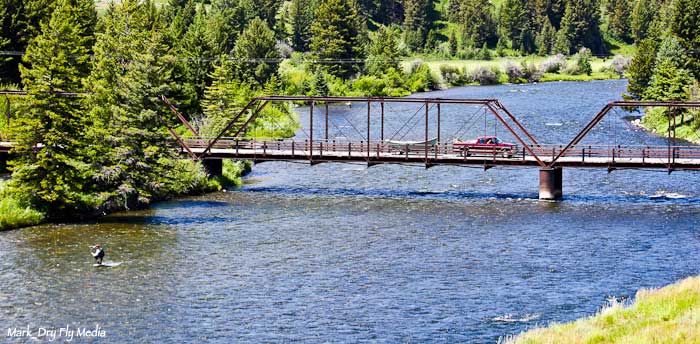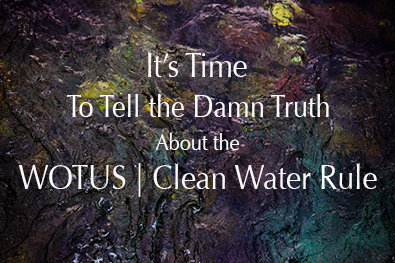
Here’s the second part of our recent interview with Jim Dawson, one of the board members of the Madison River Foundation.
If you didn’t read it yesterday, PLEASE go back and read the introduction I wrote to Part 1 of Jim’s questions, it’s critical to understanding my intent with the discussion here today.
Our historical support of the Madison River Foundation here on ChiWulff over the past decade duly noted, some allege the MRF and ED Lauren Wittorp have committed serious communication missteps regarding these issues on the Madison, critically impacting the organization’s relationship with the community of Ennis and the greater fly fishing community in the region. What steps are planned to address this issue and regain the support of and salvage your working partnership with the community?
The MRF has greatly appreciated ChiWulff’s support over the years, thank you. I hope that we still do as the underlying mission to protect, preserve, and enhance is more important now than ever. As a conservation not for profit organization, with no direct economic dog in this fight, the MRF and it’s executive director, has found itself in the gun sights of those who use the Madison River as a source of their incomes. The NRC participants are deeply divided between those that have commercial interests in using a public resource to earn money and those who do not. The MRF and it’s executive director, by supporting FWPs proposal, has become an easy target simply because it poses a potential threat to those incomes.
(OPINION) Having watched this unfold, it may be impossible to find a balance between conservation and commercial use at this time on the Madison river, as any potential threat to the river’s commercial use would encounter the same reaction as Ms. Wittorp has. Ms. Wittorp has received death threats and has been all but driven from town. Were her communications perfect, no, but whose are? I know for a fact that many of the things she has said and done have been taken out of context, have been misconstrued, and are not reflective of the underlying facts. Case in point, the photographed binder in the garbage can at the last NRC meeting with a caption that said Ms.Wittorp had thrown it in the trash having no interest in what the public had said. This was sensationalized nonsense when in fact she had already read the comments and did not want to not carry the binder around, so she put it in the trash.
Along those same lines, it’s become apparent that not all recent members of the MRF board have felt the Foundation’s positions regarding current issues were appropriate, with reports of multiple members (four?) recently having resigned in protest. What steps are being taken to ensure a broad base of leadership (all river interests fairly and equitably represented) on the MRF board from this point forward?
It is hard to square the recent departures from the board with how the Foundation has been doing. In the past two years the Foundation’s membership has more than tripled, it has raised more money, has employed more people, and has taken on more meaningful conservation projects than at any time in it’s history. Two years ago the MRF couldn’t even apply for many grants because it did not have, had never had, audited financial statements and it didn’t even know for sure how many members it actually had. Although not perfect, it is a vastly better operating organization today than it has ever been with a funded operating plan, systems, and staff.
All of the board members that have resigned were residents of Ennis or were along the upper river and thus reflect the basic thinking and values of the fly fishing community there.
The MRF’s bylaws allow any member to run for the board. There is a requirement for a % of the membership to agree in advance prior to joining the ballot. The current board supports filling it’s ranks at the upcoming election with committed members willing to take on the tough fights that accompany advocacy and conservation.
Along those same lines, it’s been alleged that the Foundation has recently lost the support of a number of industry leaders, such as Clacka-Craft, Patagonia, Blue Ribbon Flies in West Yellowstone, Mike Lawson of Henry’s Fork Anglers and others. Please address.
Patagonia is absolutely in support of the MRF; and I’d be surprised if Blue Ribbon Flies or Mike Lawson do not support the MRF’s mission. I don’t know why Clacka backed off, although I would guess it was due to concerns that their Montana boat sales to guides would suffer.
[CW Comment – Blue Ribbon Flies’ withdrawal of support is clearly stated here; Mike Lawson’s very good, if not somewhat rambling spin on the issue is here. Neither Patagonia nor Clacka have responded to queries as of the date of publication.]
Along those same lines, during a period when enhanced public communications and access would be potentially critically useful, the Foundation has suspended their blog (as of late last week) and removed the list of board members from their website. Please address.
I don’t know about the blog but I will find out. As for members of the board and staff, their names were removed due to safety concerns given the threats that have been made. (as ridiculous as that sounds).
Are you personally and the MRF organizationally willing to support whatever proposal comes out of the NRC process? The logic for the question is this – if the NRC recommendations are supported by all parties, the FWP Commission will face greater pressure to adopt the NRC’s recommendations and not implement yet another set of regulations, which are allegedly known to some members of the river and angling community currently, or not address the issue whatsoever.
Of course. By definition any proposal that comes out of the NRC will have been reached by consensus. The real question is whether a consensus can be found or not. It is the MRF’s hope that a solution will be found that can satisfy every constituency. I am not aware of any proposed compromises now on the table. Perhaps that is why another NRC meeting was called for.
As a landowner along the upper Madison and a river user, would you personally be willing to give up two or three days a week to of access to improve the health of the river?
Not sure what giving up 2 or 3 days of access means(?) or how that impacts the river’s health; but I completely agree that the health of the Madison river is THE most important thing.
A common thread of concern that I’ve heard over and over – wouldn’t restricting boating access on a navigable waterway such as the Madison be a violation of the Montana Stream Access Law and set a dangerous precedent for other rivers? (I’m sure you’ve noticed, but Montanans are damned passionate about their river access.)
The MRF is very passionate about stream access. You might not be aware that the MRF recently facilitated opening 5 miles of drive and walk in access to the river above McAtee Bridge? This project, years in the works, was driven by the MRF utilizing both LWCF and privately donated funds, which made walk in access to this stretch of the river possible for the first time ever. It was quite an accomplishment that did not gain much visibility.
As written above, the State of Montana has validated FWPs proposal to delineate walk wade from float fishing areas as not in violation of state stream access laws; and the MRF supports that proposal.
And last, the MRF’s membership, and probably every wade angler who fishes the Madison, probably appreciates that there are areas where they can fish without competition from boat anglers.

